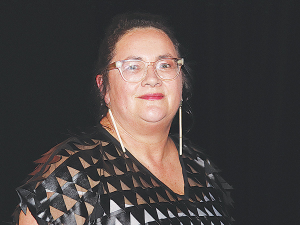Board upheaval at PGW
The board of rural trader PGG Wrightson Limited has agreed to call a special meeting demanded by its largest shareholder.
 Charlotte Severne has grave concerns about the Government’s “pricing of agricultural emissions” proposal and its likely impact on Māori landowners.
Charlotte Severne has grave concerns about the Government’s “pricing of agricultural emissions” proposal and its likely impact on Māori landowners.
The Māori Trustee says the Government response to the HWEN proposal on dealing with agricultural gasses will disproportionally disadvantage Māori landowners and doesn’t provide a solution for this inequity.
Dr Charlotte Severne is the chief executive of Te Tumu Paeroa, which administers as trustee 88,000 hectares of Māori freehold land on behalf of approximately 100,000 individual owners. She does not speak for other holders of whenua Māori, iwi, hapū or individuals, who lodged submissions of their own.
Severne says she has grave concerns about the Government’s “pricing of agricultural emissions” proposal and its likely impact on Māori landowners.
In her lengthy submission, Severne says while she recognises the need to reduce emissions, the proposed pricing system will disproportionately disadvantage Māori and she doesn’t think it is equitable.
Her submission points out the differences between Māori freehold and general land. Severne says the implementation of the present proposal will disadvantage the lands she administers, which are predominantly small, fragmented and individually uneconomic Māori holdings, often on marginal lands.
She adds that the large economic Māori whenua-based entities in her portfolio would also be disproportionately affected by increased compliance costs.
Severne’s submission expresses concern about the impact the proposal will have on rural communities, where Māori are often over represented.
“The proposal seems designed from a western point of view and doesn’t recognise the cultural value that Māori place on land, in addition to economic value,” she explains. “There is also concern that the measures seem more directed at large, economically strong farming operations, not those over-represented in the classes of land where whenua Māori is located.”
Severne says she also does not support the Government’s approach to recognising carbon sequestration, saying the reduction in categories of vegetation being recognised will disproportionately affect whenua Māori and whenua Māori landowners because of the exclusion of vegetation they currently have on their properties.
While Severne’s submission opposes much of the proposed policy, she does support the proposal to work with Treaty partners to understand ways to reduce the administrative burden of agricultural emissions pricing on whenua Māori agribusinesses.
Coming in at a year-end total at 3088 units, a rise of around 10% over the 2806 total for 2024, the signs are that the New Zealand farm machinery industry is turning the corner after a difficult couple of years.
New Zealand's animal health industry has a new tool addressing a long-standing sustainability issue.
The Government has announced that ACC will be a sponsor of this year's FMG Young Farmer of the Year competition.
As veterinary student numbers grow to help address New Zealand's national workforce shortge, Massey University's School of Veterinary Science is inviting more veterinary practices to partner in training the next generation of vets.
South Island dairy farmers will soon be able to supply organic milk to Fonterra.
Norwood has announced the opening of a new Tasman dealership at Richmond near Nelson next month.

OPINION: Meanwhile, red blooded Northland politician Matua Shane Jones has provided one of the most telling quotes of the year…
OPINION: This old mutt has been around for a few years now and it seems these ‘once in 100-year’ weather…